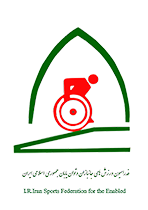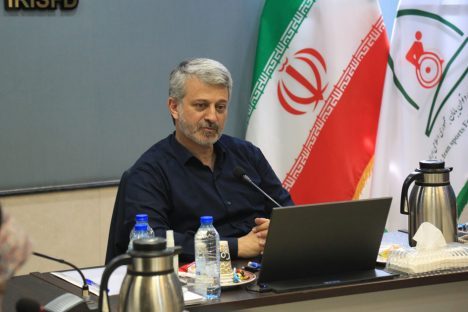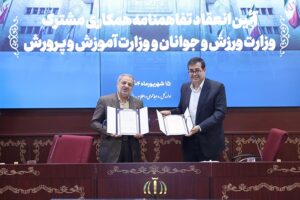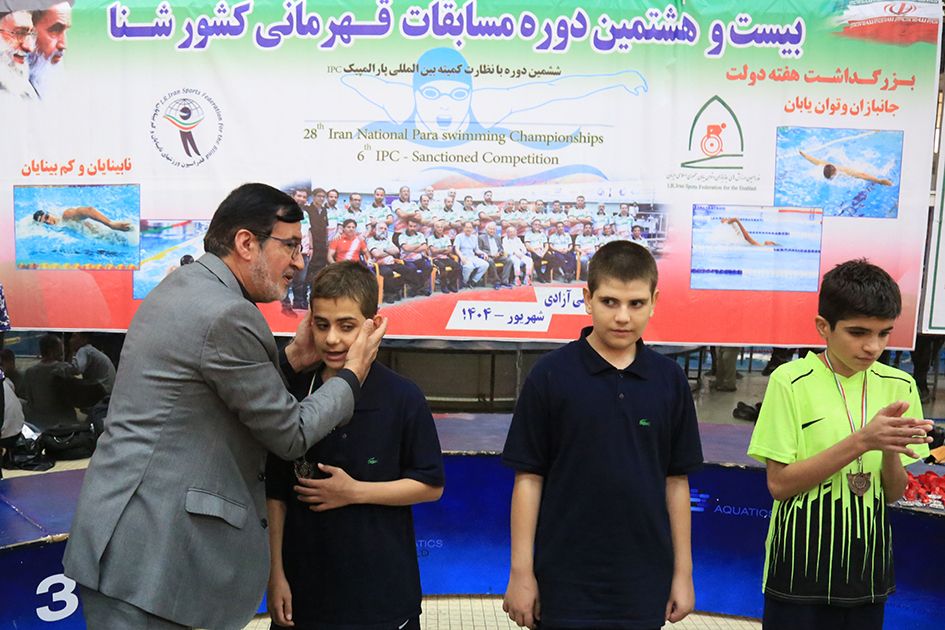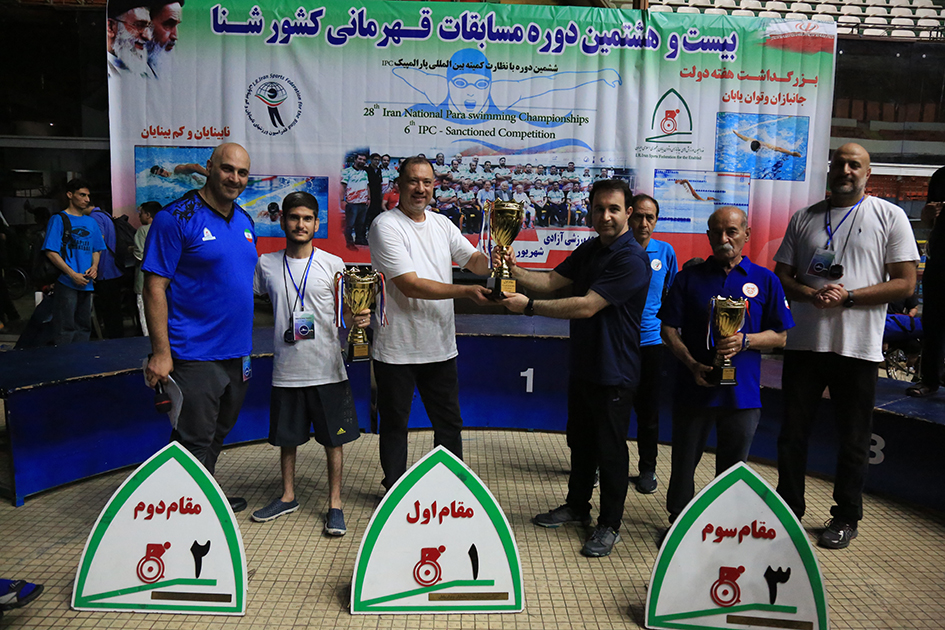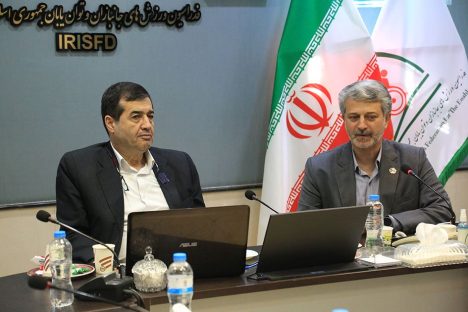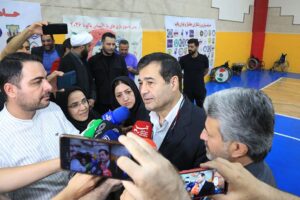At a press conference held by the Ministry of Health, the Federation President stated that the goal of sports is to help individuals with disabilities return to normal life and social integration.
According to the Public Relations of the Federation, during a press conference on the Ministry of Health’s actions during the 12-day war, Dr. KoohpayeZadeh, President of the Federation, said: This federation was established with the aim of motivating and maintaining the health of veterans and disabled individuals from the early years after the glorious victory of the Islamic Revolution. War is never a good event, but we must not overlook the injured with disabilities. We should invite them to the field of sports to preserve their health and boost their morale.
He continued: Sports provide an opportunity to overcome many physical and psychological limitations. Those injured physically in this war need to adapt to new living conditions and must be provided with the necessary facilities. The Federation of Sports for the Disabled and Persons with Disabilities, along with its 31 provincial boards and 340 county boards, is ready to offer initial free sports services to veterans and disabled injured in the 12-day war.
The Federation President added: We have seriously engaged with this issue. Although accurate statistics on the number of veterans and disabled injured have not yet been published, it is possible that some individuals have physical and mental disabilities, ranging from amputations to spinal cord injuries and psychological trauma requiring long-term treatment. The purpose of sports is to help individuals with disabilities return to normal life and social integration.
Dr. KoohpayeZadeh stated: We have asked the boards to cooperate with govern-orates, municipalities, medical universities, and related institutions to proactively reach out to those disabled in this incident rather than waiting for them to come forward. Usually, individuals with amputations initially seek prosthetics and treatment rather than sports. However, experience shows that sports play a more significant role in physical and psychological rehabilitation, a fact also recognized internationally.
He emphasized: We aim to provide a report in the coming weeks on the actions taken, including who has been invited to sports and what activities have started. We hope closer cooperation with the Ministry of Health will also expand sports rehabilitation in traffic accidents and natural disasters.
He called on the media to strengthen social demand for expanding sports services for people with disabilities through awareness and cultural promotion, saying: We must respond to this demand. The health system can respond up to a point, but beyond that, physical, psychological, and social rehabilitation is the responsibility of organizations such as the Martyrs and Veterans Affairs Foundation, the Welfare Organization, and sports federations.
Dr. KoohpayeZadeh referred to the successful experience of Paralympic champions, saying: Today, the success of our Paralympic athletes shows that a person with physical, motor, or mental disabilities can become a Paralympic champion after years of training and serve as a role model for society. This demonstrates that the progress speed of athletes with disabilities can exceed expectations.
He stated: Alongside the Martyrs and Veterans Affairs Foundation and the Welfare Organization, sports federations are also obliged to pay necessary attention to maintaining the health and motivation of veterans and disabled individuals.
The Federation President spoke about utilizing artificial intelligence in veterans and disabled sports, saying: With the help of AI, a software has been designed by a knowledge-based company at Mashhad University that enables performing sports exercises at home. This software can operate with both live and virtual coaches to facilitate easier access to sports.
Dr. KoohpayeZadeh added: Our goal is not to wait for individuals to come forward but to proactively reach out to them using data from medical universities and govern orates. This approach ensures that people living in remote areas also receive sports and rehabilitation services.
He pointed out the country’s movement toward aging, adding: Iran will be among countries with a high elderly population in the coming years. Therefore, developing urban infrastructure for the mobility of the elderly, veterans, and people with disabilities is not only a necessity but also an investment for the future.

